Business
Black History Month: 10 Black Fortune 500 CEOs
Published
4 years agoon
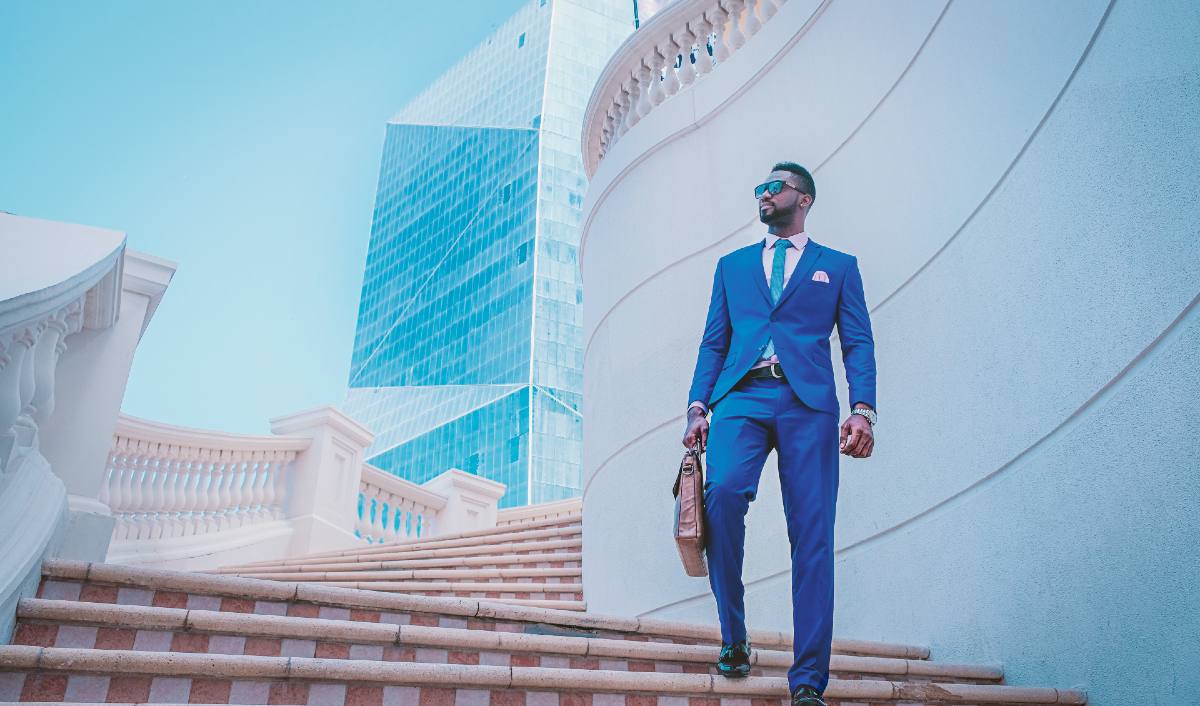
If you think there aren’t enough African American CEOs around, you’re not mistaken. According to statistics, only one percent of Fortune 500 CEOs are black. And, in addition to that, the trend has been plummeting down over the past ten years, in contrast to the rising numbers of Asian-American and Hispanic CEOs.
With more attention being paid to diversity in the workplace, why aren’t there more black CEOs in various industries? There are several factors at play.
In an interview with the Wall Street Journal, former Black CEO of Aetna Ron Williams says the opportunity is not equally distributed. According to Williams, there are many promotions that are informally decided even before the jobs are even posted. As a result, other talents, including Black employees, don’t get a fair chance to compete.
This Black History Month, let’s take a look at some of the influential African American Fortune 500 corporate leaders.
1. Roger Ferguson Jr.
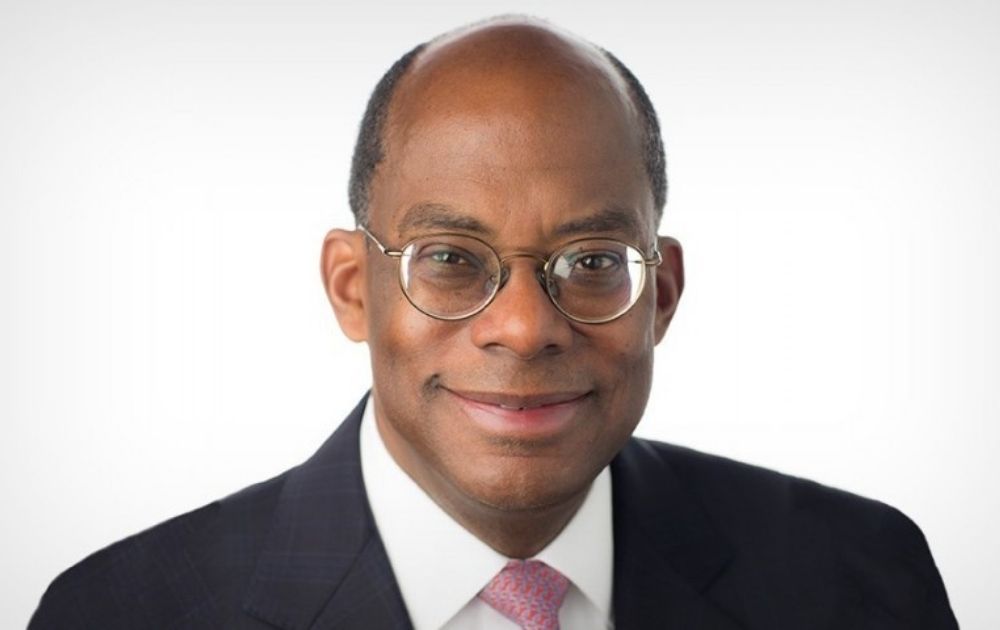
Roger Ferguson Jr. is the current President and CEO at TIAA, a Fortune 100 financial services organization. Being an executive of the leading provider of retirement services in academic, medical, research, and cultural fields is not easy. Still, Ferguson has been doing a great job at it since 2008.
Ferguson is also the chairman of The Conference Board. He also serves as a member of several boards. These include Alphabet, the Institute for Advanced Study, General Mills, International Flavors and Fragrances, and Memorial Sloan Kettering Cancer Center.
2. Kenneth Frazier
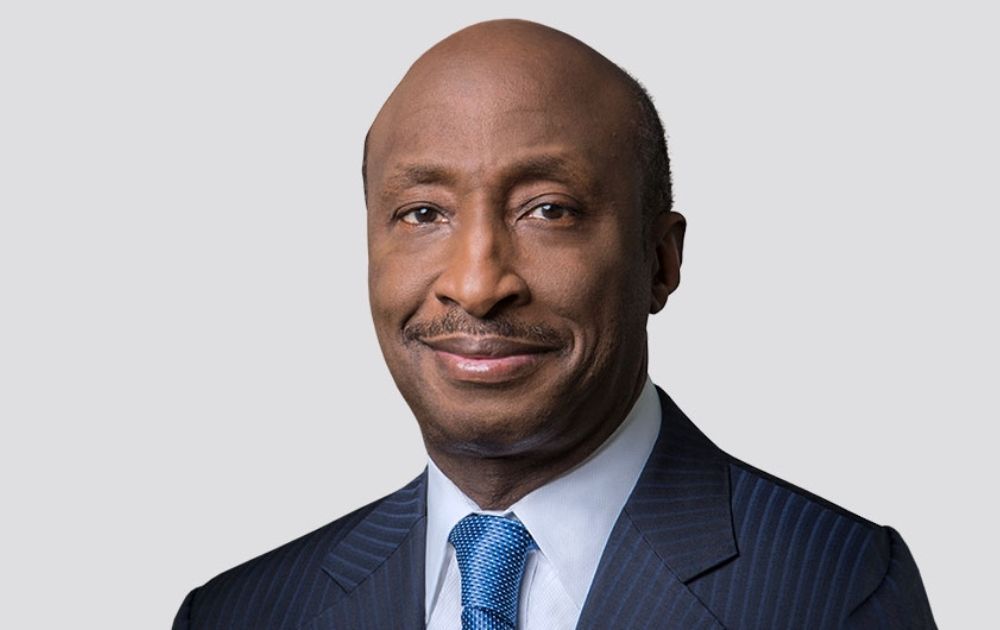
Kenneth Frazier is the chairman of the board and the Chief Executive Officer of Merck since 2011. Frazier’s leadership guides the firm as it continues to be one of the largest pharmaceutical companies in the world.
According to Merck’s website, its current CEO has substantially increased the business’s investment in research. In addition to that, he has also refocused Merck’s efforts to launch and grow products that benefit society. Frazier joined the firm in 1992 and rose from the ranks. He held positions including General Counsel and President on his way to being the top executive. And for that, he earns a spot here at our list of CEOs for Black History Month.
3. Marvin Ellison
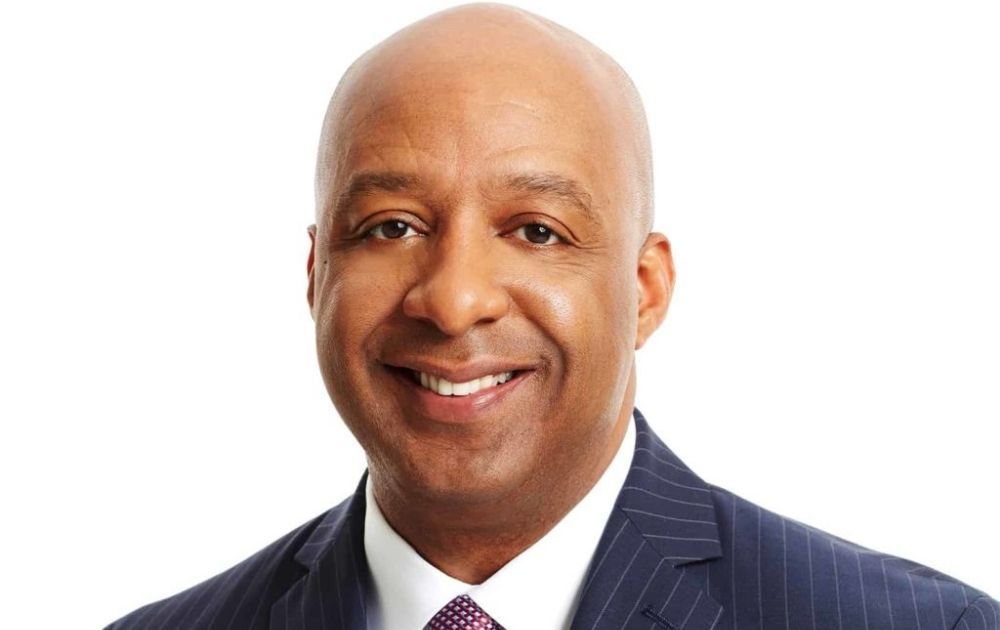
Marvin Ellison is the current President and CEO at Lowe’s Companies, Inc. and has been so since 2018. Prior to being Lowe’s chief executive, he has also served as the chairman and CEO of J.C. Penney Co. from 2014 to 2018. During his time at the firm, he guided the team to deliver sales growth, reduce debt, and earn adjusted earnings per share.
Ellison has also held senior-level operations roles in big companies within the retail industry. His experience includes stints at Home Depot Inc. and Target Corp.
4. René Jones

René Jones is the chairman and CEO of M&T Bank and has been so since December 2017. Jones takes pride in leading a firm that aims to make a difference in society. In the same vein, he strives to lead the bank to play an active role in making communities better places to work, live, and grow.
In his LinkedIn account, Jones described M&T Bank as “a community bank and a bank for communities.” He guides the firm to be a “glue” that binds people and fosters social change and progress.
5. Jide Zeitlin
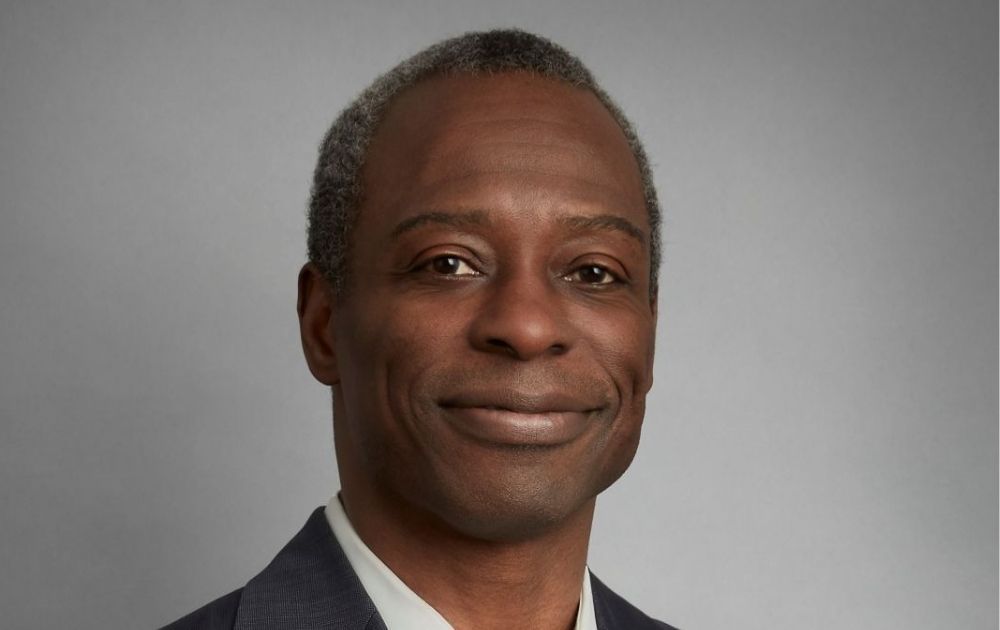
Jide Zeitlin was appointed CEO of luxury goods firm Tapestry in September 2019. Also the chairman of the Board at that time, Zeitlin led the parent company of Coach, Kate Spade, and Stuart Weitzman backed by his over three decades-worth of experience in the global financial industry.
Not even a year in the position, however, Zeitlin left the corner office in July 2020. He resigned as chairman and CEO following misconduct allegations.
6. Kenneth Chenault
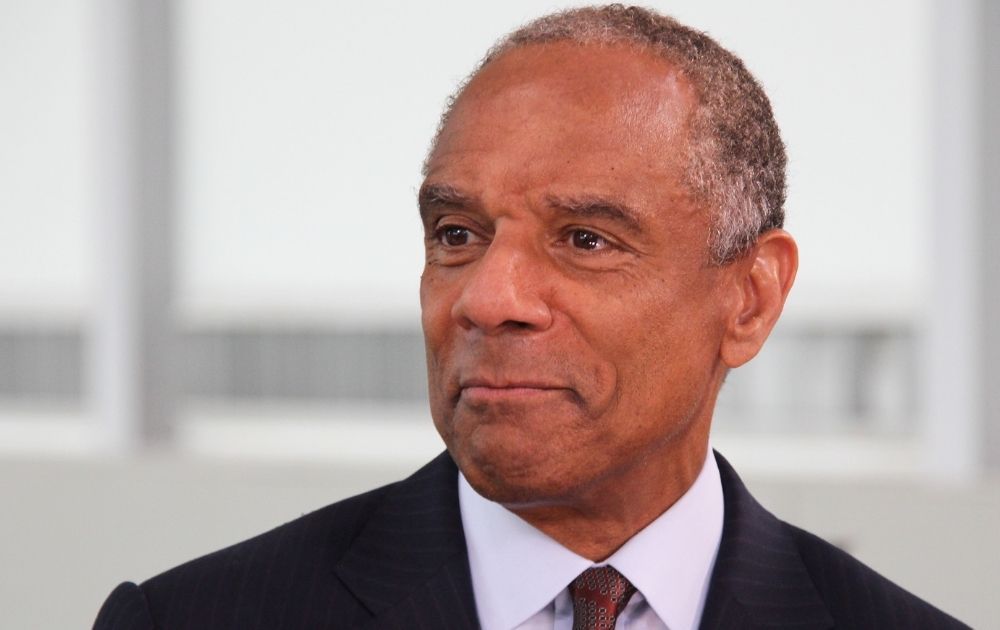
Kenneth Chenault served as the CEO of American Express from 2001 to 2018 and was one of the first African Americans to become a CEO of a Fortune 500 company. Initially joining the multinational financial services firm in 1981, he worked his way up to Chief Operating Officer and President in 1997 before becoming the CEO in 2001. Chenault’s hard work landed him on the C-suite at a time when most companies are yet to exert efforts to address employee diversity.
7. Ursula Burns
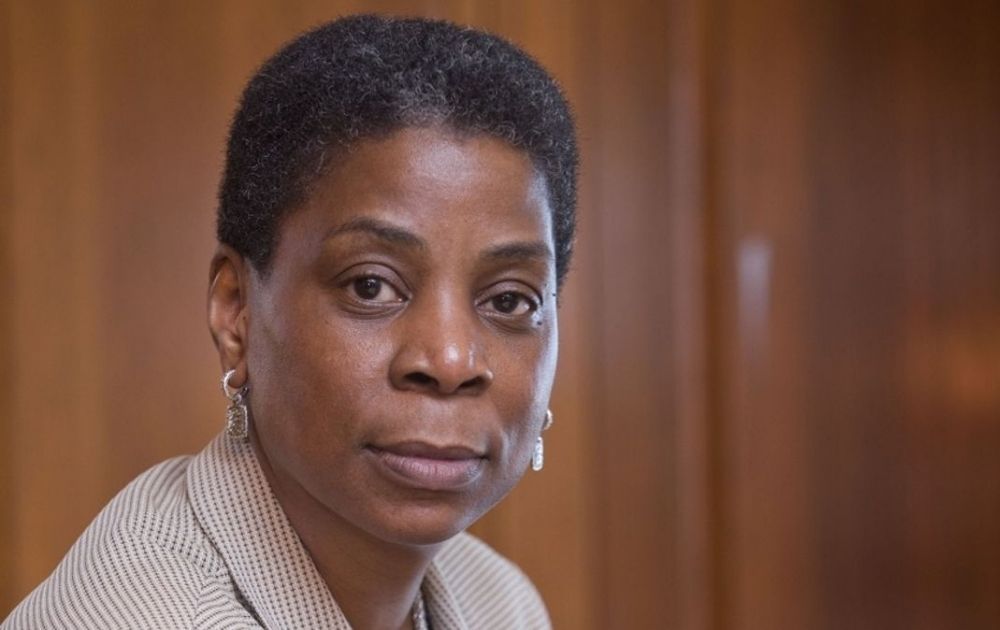
Black History Month and Women’s History Month come one after the other, and Ursula Burns is the perfect person to recognize for both. Serving as CEO of Xerox Holdings from 2009 to 2017, Burns was the first African American woman CEO of a Fortune 500 firm.
Burns joined Xerox in 1980 as a summer mechanical-engineering intern, back when she was taking up her master’s degree at Columbia University. She rose from the ranks, and when she finally reached the C-suite, she helped the firm generate $18 billion in revenue.
8. Don Thompson
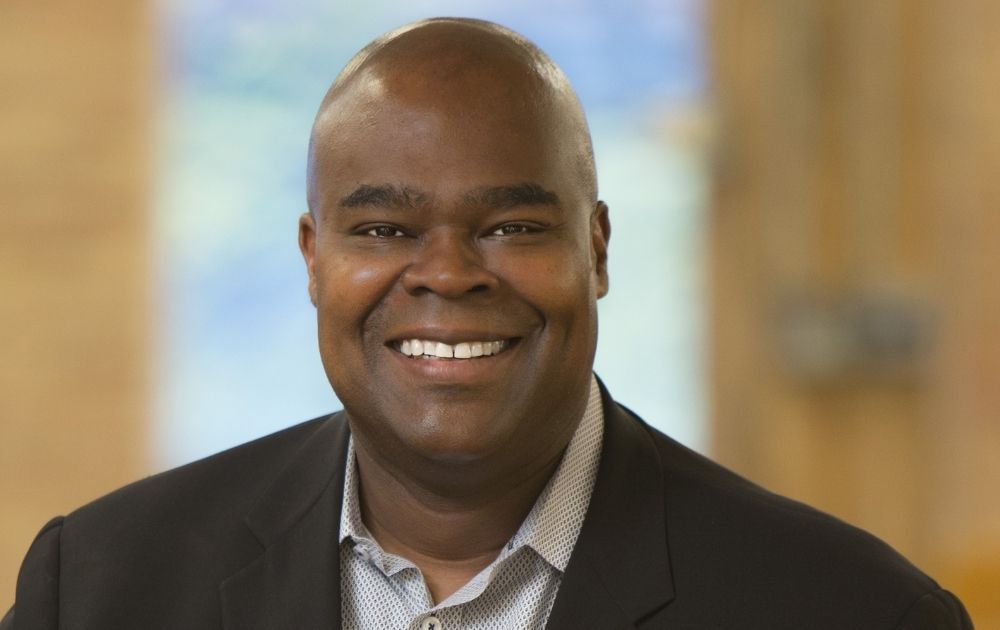
Don Thompson was the CEO McDonald’s Corp from 2012 to 2015. Thompson held the reins at such a challenging time. When he sat down as CEO in 2012, he had to face the challenge of leading the company to add to almost nine years of sales gains at established stores. However, just two months into the job, the firm reported same-store sales to decline with various issues at hand, including political troubles in Europe and food safety concerns in China.
9. Rodney O’Neal
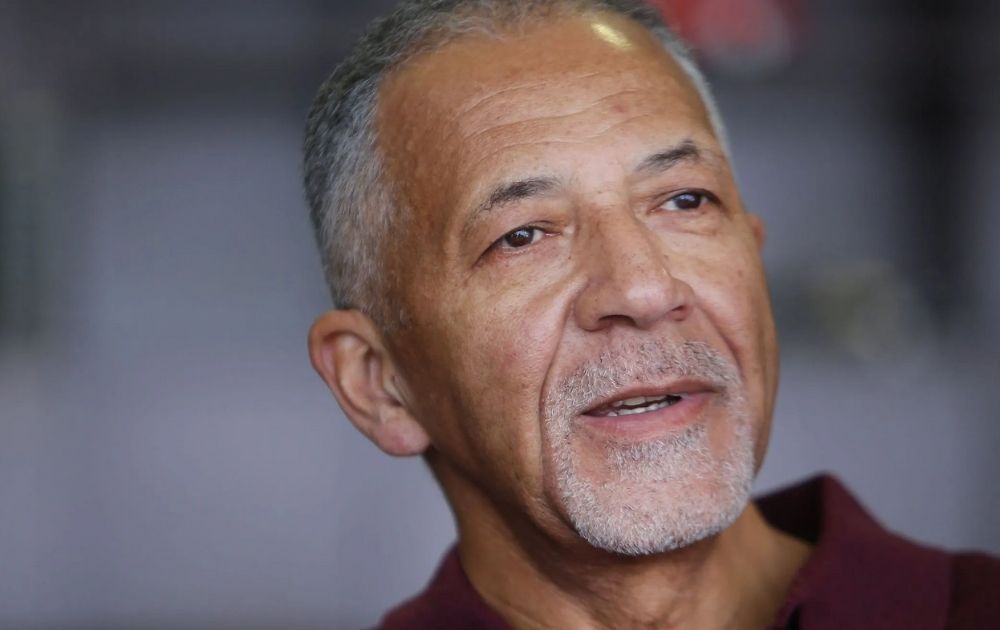
Rodney O’Neal served as the CEO of Delphi Automotive from 2007 to 2015. O’Neal’s time at the helm was not an easy ride – he took charge of the firm halfway through its massive restructuring in federal bankruptcy. Despite all the hardships, he was able to lead the firm through. Delphi got out of exited bankruptcy, returned back to the stock market, and grew sales at 45 percent during O’Neal’s final year.
10. Clarence Otis Jr.
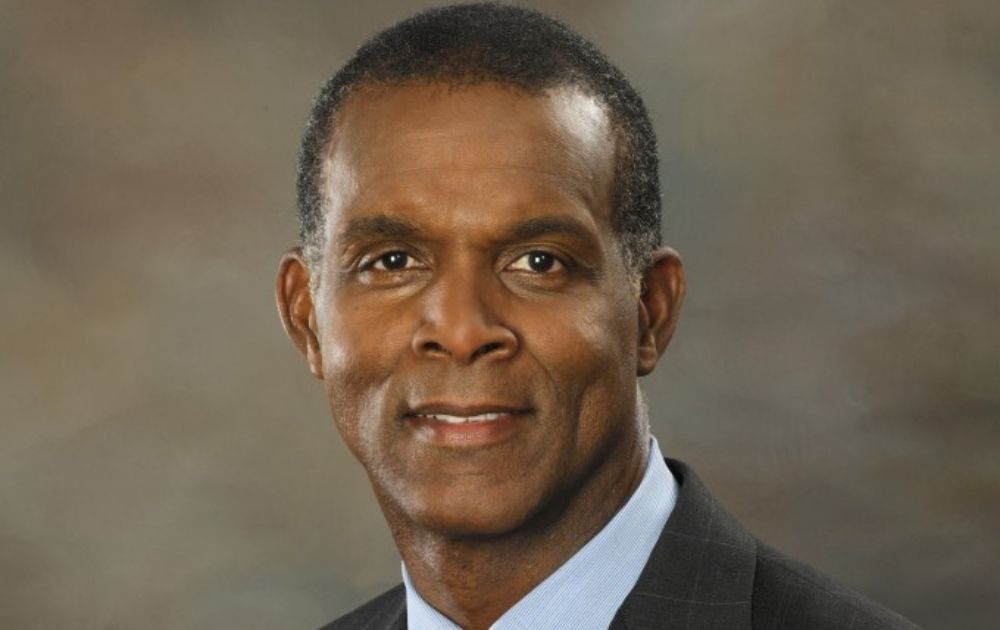
Last but not least on our Black History Month CEO list is Clarence Otis Jr., who served as the CEO of Darden Restaurants from 2004 to 2014. For the most part, Otis led the company’s growth that owned Capital Grille, Olive Garden, and LongHorn Steakhouse.
While restaurant operator top execs typically come from the food and beverage industry, Otis’s background is unconventional. Before working for Darden as a treasurer in 1995, he was a securities lawyer and a JPMorgan Chase manager.
For other business related stories, you can read more here in Owner’s Mag!
You may like
Business
Discover 2025’s Top 10 Online Banks for Smart Savings
Published
2 months agoon
January 24, 2025
McKinsey & Company reveals that 73 percent of bank transactions worldwide now take place online, such as in digital banks and payment systems. The increasing demand of customers for more flexible banking options is attributed to the rise in online banking channels. People prefer online banks because they offer simple tools and resources to manage their money. With this trend, online banking is here to stay.
Best Online Banks: A Quick Guide
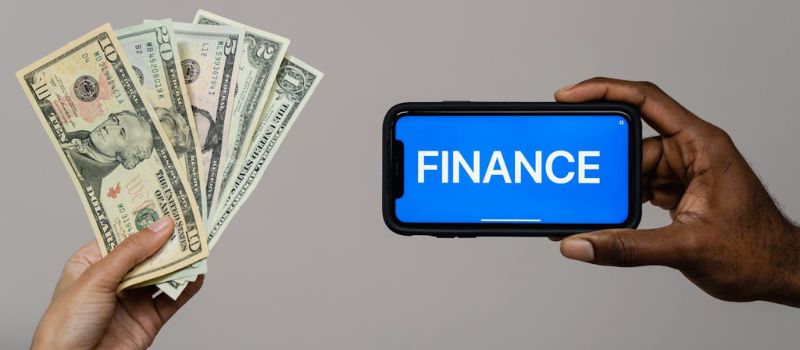
Image Source: Tima Miroshnichenko from Pexels
An online bank should cater to your financial needs like any traditional alternative. Here are a few factors to consider when choosing online banks:
Annual Percentage Yield (APY)
The annual average yield offered under each account will tell you how much interest your money will earn. When comparing online banks, consider one that offers competitive rates across all of its deposit accounts.
Products and Services
Some online banks offer a complete package of banking products, including checking, savings, certificates of deposit (CDs), and money market accounts. They also offer loans and credit cards. So, look at the products and services offered by online banks before making a decision. You may also combine the services of an online bank with a traditional brick-and-mortar bank.
Account Access
Typically, online banks offer 24/7 access to your account through their website or app. However, you should also consider how the bank handles deposits and withdrawals. It is crucial to know the restrictions, if any, on transfers, the limitations on withdrawals, and whether the bank accepts free cash deposits.
ATM Network
An ATM network is essential if you frequently withdraw or deposit cash. An extensive ATM network will help you avoid transaction fees. If the bank is not associated with a large ATM network, you should look for one that will reimburse out-of-network ATM fees.
Digital Tools
The best online banks offer innovative digital tools to help you accomplish financial goals. For example, Ally will help you organize your savings goals with savings buckets and analyze your spending habits to safely transfer available funds from your checking to your savings account.
Fees
You should avoid any bank, online or otherwise, that charges monthly fees or has extensive requirements to avoid them. Many online banks offer no-fee deposit accounts, require a low or $0 initial deposit to open the account, and don’t need a minimum balance to avoid maintenance fees. However, make sure you know whether the bank charges excessive withdrawal fees, paper statement fees, or fees for other services that you may want to use regularly.
Customer Service
Since you won’t have access to in-person customer service with an online bank, determine how you can contact a customer service representative if needed. Most online banks offer telephone support, live chats, or assistance via email. Some online banks also offer access to live support via extended hours or 24/7.
10 Top-Performing Online Banks

1. Alliant Credit Union
Alliant Credit Union is an NCUA-insured online credit union offering members competitive deposit account rates and minimal fees. Most accounts don’t charge maintenance fees, but these can be waived if you sign up for e-statements. Membership is available for current or former employees of Alliant’s partner businesses in the US. You can also become an Alliant Credit Union Foundation digital inclusion advocate to become eligible for membership. Signing up costs $5, but Alliant will pay the one-time fee on your behalf.
Alliant’s certificates earn solid APYs, with terms ranging from one year to five years. Its savings account earns a respectable yield of 3.10% APY on balances of $100 or more, but there are plenty of higher-yielding savings accounts with APYs over 5%. We like that Alliant’s High-Rate Checking account pays a better yield than other checking accounts and doesn’t require a minimum balance or charge service fees.
2. Varo Bank
Varo offers checking and savings accounts but doesn’t offer deposit certificates. Savings account comes with an APY starting at 2.50%. That rate becomes 5.00% for the first $5,000 if a customer meets the monthly requirements of the bank.
Cash deposits have limits and fees, and Varo customers can only deposit cash at a 3rd party retailer that joins the Green Dot network, including CVS, 7-Eleven, or Walgreens. On the other hand, cash withdrawals can be made through an ATM in the Allpoint network for free.
3. Ally Bank
Established in 2009, Ally Bank is full-service online bank that offers competitive rates on all deposit accounts. Customers can enjoy the highest rates for all balances, regardless of tier. Overall, the high APYs, minimal fees, and reliable customer service support makes Ally an excellent banking solution for millenials who want better savings and retirement plans.
4. Discover Bank
Discover Bank offers deposit accounts, credit cards, personal loans, and student loans. We like that Discover offers deposit accounts, such as CDs, savings, and a money market account, at competitive rates with no fees. While its $2,500 minimum deposit requirement for its CDs is steep, there is no minimum deposit required to open and maintain a savings, money market, or checking account.
5. Laurel Road
Laurel Road, powered by KeyBank, helps healthcare and business professionals achieve their financial goals. They offer student loan refinancing, mortgages, personal loans, credit card, and specialized savings accounts. Laurel Road also offer Loyalty Checking with a low APY. New customers can earn a sign-up and monthly bonus with qualifying direct deposits. In addition, both savings account and checking account has no monthly free or minimum balance requirement.
6. Capital One
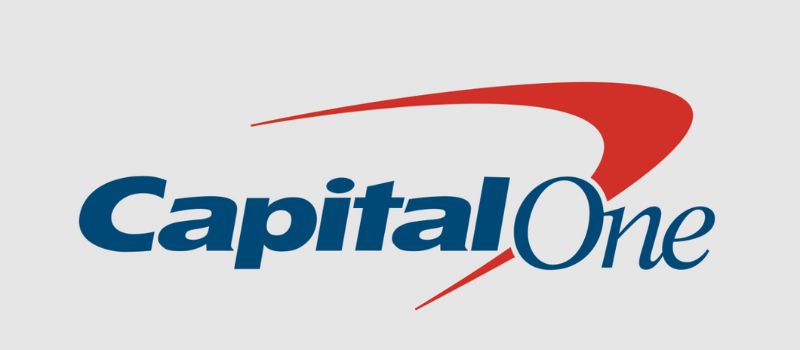
Capital One offers an above-average 3.80% APY on its savings account, strong rates on its certificates of deposit, and 0.10% APY on all checking balances. All accounts are free, and customers can access over 70,000 free ATMs.
7. American Express National Bank
This bank offer High Yield Savings Account with a 3.80 APY. Likewise, certifcate deposits (CDs) have competitive rate and there is no minimum opening deposit. You don’t have to worry in case you encounter banking-related issues because American Express National Bank has 24/7 phone support and online chat support.
8. Marcus by Goldman Sachs
Launched in 2016, Marcus is the online-only banking arm of Goldman Sachs, one of the 15 largest banks in the US. The bank’s savings accounts and CDs offer competitive yields and no monthly maintenance fees.
While some online banks offer no minimum deposit requirement to open an account, Marcus requires a $500 deposit to get started with a CD. There’s no minimum deposit requirement for its high-yield savings account. Marcus doesn’t offer a checking account or money market account.
9. My Banking Direct
My Banking Direct is the online-only arm of Flagstar Bank, N.A., which New York Community Bancorp owns. The bank is a lean financial service that offers only savings, checking, and a five-month CD term. The APYs on its savings account and CD are among the best available today.
In addition, the bank doesn’t charge monthly or overdraft fees and provides surcharge-free ATM access through a 55,000 Allpoint and Presto network. To open a savings account, you must deposit $500. Checking accounts can be opened with just $1. During the week, you can access extended customer service hours until 8 p.m. ET and 2 p.m. ET on Sundays.
10. SoFi
SoFi (short for Social Finance) was the brainchild of Stanford Graduate School of Business students who created an alumni-funded lending source initially focused on refinancing student loans. Since then, SoFi has expanded into a variety of loan categories and now offers online checking and savings accounts.
Conclusion
Online banks lets manage your money and account via a website, mobile device, or app. Also, online banks generally offer higher interest rates and fewer fees than traditional banks. You should remember that while technology makes everything accessible, online banks also have some limitations. For instance, online-only or internet-only banks lack in-person interaction. However, if you are comfortable managing your money online, online banks are a convenient and low-cost option.
Business
The Latest In The AI Boom: What Entrepreneurs Need To Know In 2025
Published
2 months agoon
January 24, 2025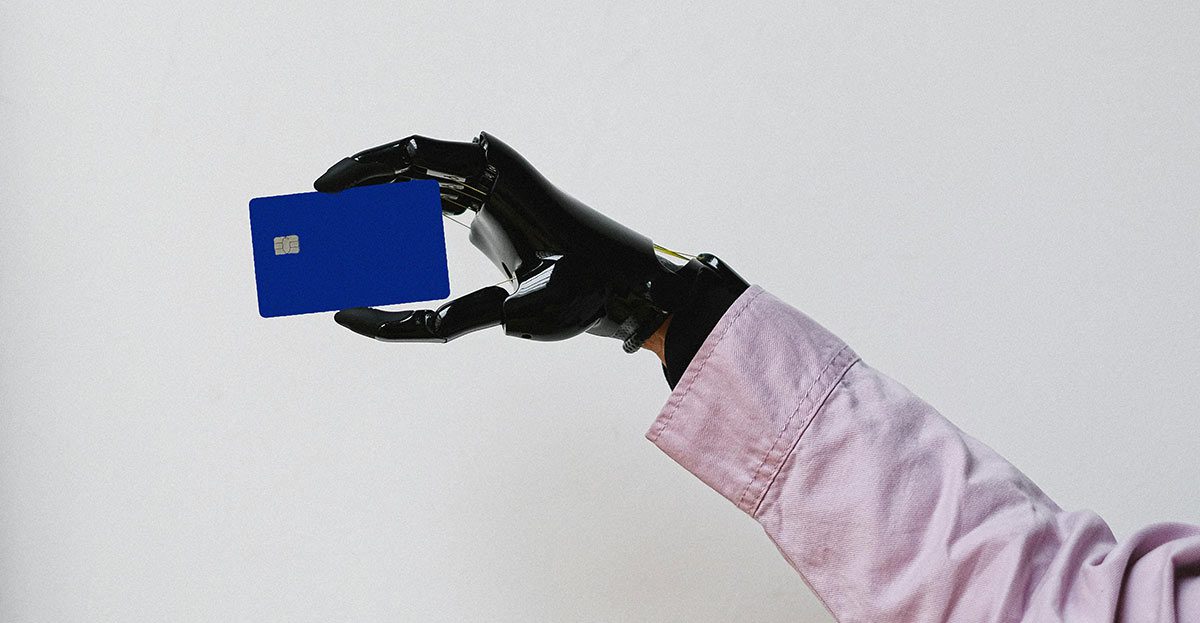
Anyone unaware of how AI is revolutionizing almost everything we do daily could be living under a rock. Artificial intelligence has evolved at an unprecedented speed, transforming industries and reshaping how we operate businesses. Let’s explore the latest developments in the AI boom and what entrepreneurs can do to stay competitive.
AI’s Current State in Business
According to recent industry reports, the AI market is expected to surpass $1 trillion by 2030, with an annual growth rate of more than 35%. This is why businesses across all industries are investing heavily in AI technologies. Whether startups or global enterprises, they do this to stay competitive and meet the evolving expectations of their clients.
How Businesses Are Using AI to Gain a Competitive Edge
AI use by many companies is now commonplace thanks to its many benefits. There’s the enhanced efficiency, boosted productivity, and improved customer experience, among many others. Some of these applications include:
- AI-Powered Automation: Repetitive tasks such as data entry, customer service interaction, and marketing campaigns can now be done using AI. It frees you up to give you more valuable time and resources.
- Predictive Analytics: With AI technology, vast amounts of data to forecast trends, customer behavior, and market demands are easily within your reach. This helps you make better decisions.
- Personalized Customer Experiences: Chatbots and AI-driven recommendation engines are just two examples of how AI can help you provide more tailored customer experiences. It also allows you to deliver hyper-personalized content and services previously available.
- Operational Efficiency: AI optimizes supply chains, inventory management, and logistics. This helps reduce costs and improve your turnaround times.
Many businesses nowadays are using AI to disrupt industries while achieving success. You’ll find AI-powered chatbots handling customer support and content creation, while e-commerce platforms use AI-driven recommendations to boost sales, as Shopify exemplifies. In health care, AI improves diagnostics and treatment accessibility, while marketers use AI for data-driven campaigns and optimized ad spending.
Emerging AI Trends You Need to Watch
Source: Rahul Pandit on Pexels
It seems that entrepreneurs have no option but to embrace the transformative trends brought about by AI. The following are a few you must take note of:
- AI-powered automation is simplifying operations and cutting costs.
- Generative AI is revolutionizing content creation, marketing strategies, and product design.
- AI in customer service uses chatbots, personalization, and predictive analytics to meet growing demands.
- AI ethics and regulation ensure businesses comply with evolving laws and ethical standards.
- AI-driven decision-making helps businesses gather data insights for smarter, more strategic choices to drive long-term growth and success.
Must-Have AI Tools for Entrepreneurs in 2025
It’s not getting on the bandwagon but keeping up with the times. Here are a few examples of AI tools you can use for efficiency and growth:
- Marketing and SEO: Tools like Jasper and SurferSEO can help you craft optimized content, analyze trends, and improve search rankings with ease.
- Sales and CRM: HubSpot AI and Salesforce Einstein offer intelligent automation, customer insights, and predictive analytics to boost sales performance.
- Productivity and Automation: Zapier AI is an excellent option for task automation, while Notion AI is great for smart content organization.
- Finance and Analytics: Quickbooks AI and Tableau AI provide real-time financial insights, forecasting, and data visualization.
When choosing the right AI tools for your business, consider scalability, integration capabilities, ease of use, and cost-effectiveness. Make sure they align with your business goals and your workflow needs.
The Challenges Entrepreneurs Face in Their Adoption of AI
Source: Google DeepMind on Pexels
Admittedly, AI has immense potential; however, adopting it comes with challenges that entrepreneurs must navigate. Below are a few:
- Cost Consideration and ROI Expectations: When you implement AI solutions, you may need significant upfront investment. Also, measuring long-term returns can be complicated.
- Skills Gap: You will wonder if you need AI expertise or if you can rely on external support to use AI in your business effectively.
- Data Privacy and Security Concerns: Protecting sensitive customer information while ensuring compliance with data protection regulations can be challenging.
- Overcoming Resistance to AI Integration with Your Team: Your team members may fear job displacement or struggle adapting to new AI-driven workflows and tools.
Practical Steps to Integrate AI into Your Business
Here are a few easy steps to take if you want to integrate AI into your business:
- Assessment of Your Business Needs: Identify which areas of your business would benefit from the technology. Is it customer service, operations, or marketing?
- Start with Low-Risk Implementations: Look for small-scale projects that are easy to implement and carry minimal risk. You can start by adopting AI-driven tools for marketing, chatbots for customer support, or simple automation tasks.
- Measure AI Impact and Scaling: Assess the performance and impact of your chosen AI solutions on your business. Measure key metrics like productivity, cost savings, and customer satisfaction. This way, you’ll find out if your AI adoption is giving the value your business needs. Scale its use as you gain confidence and see more positive results.
- Partner with AI Consultants: Work with AI experts or consultants to guide the integration process. This ensures you’re using the right tools and strategies. This can also help you overcome any technical challenges you may face.
The Future of AI in Entrepreneurship
Market research firms, AI experts, and thought leaders see AI going through the following:
- AI’s role in startups and small businesses will become essential, providing them with affordable solutions to automate tasks, enhance marketing, and improve customer service, leveling the playing field with larger companies.
- AI will transform industries such as healthcare, retail, and finance. It can dramatically improve efficiency and customer experiences. It will also create new job roles, requiring business owners to adapt and upskill their workforce.
- Additionally, entrepreneurs must stay ahead of the curve with continuous learning and adaptation. This will keep them competitive and ensure long-term success.
Conclusion
Entrepreneurship has been and will continue to be impacted by AI, but most of it will be transformative. The technology presents significant opportunities to help businesses thrive, leaving no option for business owners but to embrace these emerging trends. You need to start now, keep learning, and integrate strategically.
Business
Omnichannel Marketing Platforms: Definition, Examples & Tools
Published
3 months agoon
December 22, 2024By
Kai Kelis
Omnichannel has become a recent buzzword online. That’s because the business landscape has shifted most of their marketing efforts into virtual communication. Advertisers are always looking for new ways to boost online connections with audiences while increasing sales. This is how “omnichannel” sprouted quickly and into every marketer’s arsenal. But what is omnichannel, and what are some omnichannel marketing platforms that do the job? Read on to find out.
What is Omnichannel Marketing?
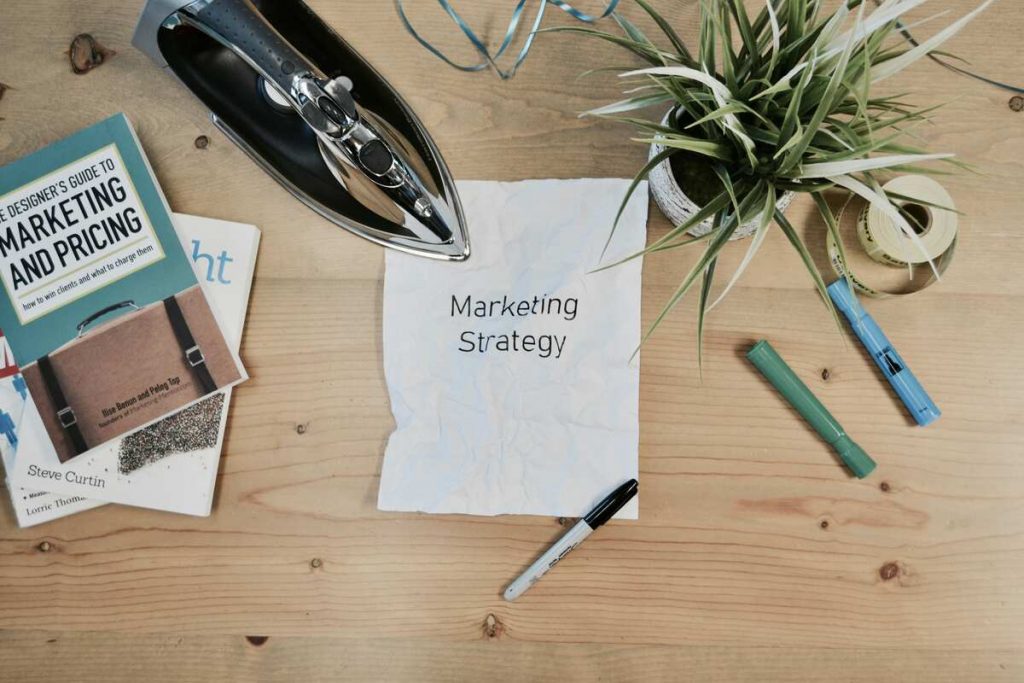
The concept of omnichannel is simple. It aims to provide marketers a quick way to communicate with their customers and get as much engagement and conversion as possible from one go. Their objective is for customers to enjoy a seamless shopping experience on multiple brand channels, including online, mobile, or in-store. This means, marketers would have to show customers the same pricing and promotions across all brand channels.
However, it also goes beyond that. You have to ensure that customers can navigate through different channels with ease. This means customers can switch between your brand channels without any roadblocks. For instance, a customer can order from your online store and have the option to pick it up from your physical location. One way to increase sales is by offering customers additional items to boost order value.
Why is Omnichannel Marketing Important?
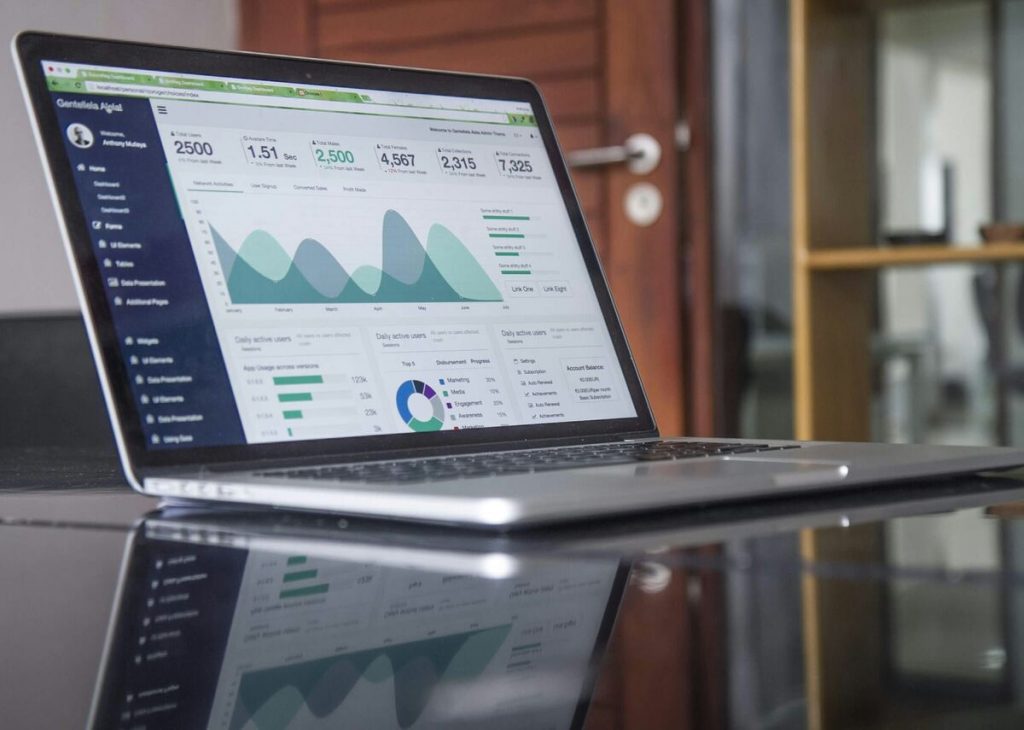
Omnichannel marketing is crucial these days since most people have shifted to online browsing and shopping. Moreover, if advertisers market on three or more channels, this could result in a 90 percent higher retention rate compared to using a single-channel campaign.
Additionally, omnichannel marketing also strengthens your brand messaging since campaigns are consistent across all platforms. But what are the primary reasons why advertisers focus on omnichannel marketing?
- Brands will get high customer retention
- Gains customer loyalty
- More personalization in the customer’s journey
- More integrated business
- Better customer insight
- Smooth and enjoyable customer experience
How Does Omnichannel Advertising Work?
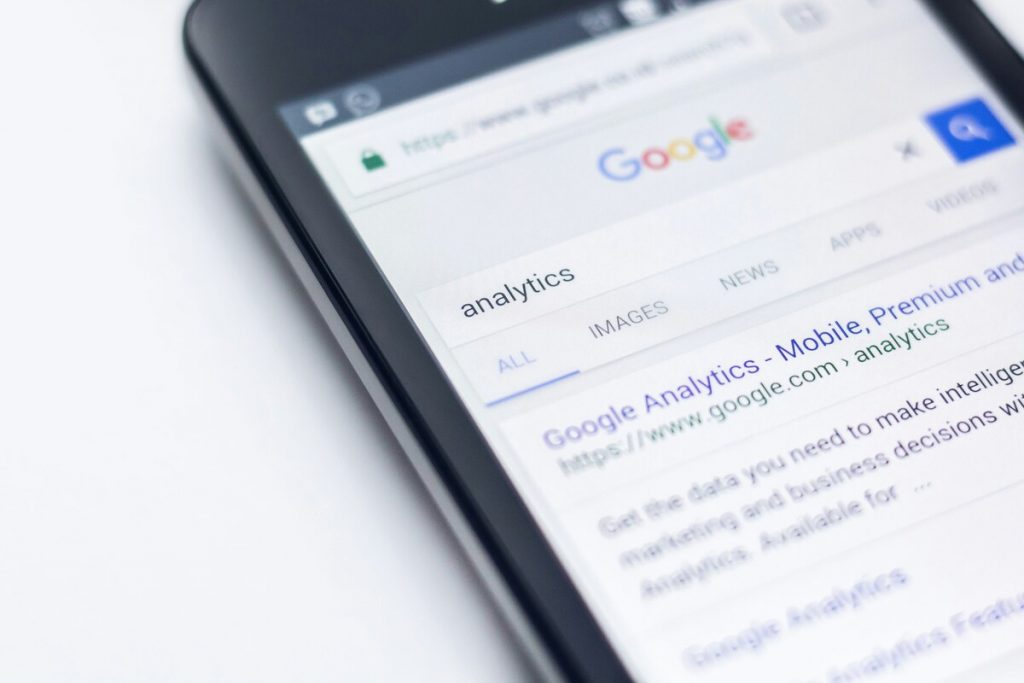
An example of omnichannel marketing is when a sports retail store sends its prospects an email containing a recent promotion on its newly launched running shoes. The email content shows the link to the promotion. Once customers click this link, they are taken to the brand’s eCommerce website. Instructions also let them know they can get it from the brick-and-mortar store.
Another example is when a furniture store shows a behind-the-scenes video on YouTube about how its experts craft their pieces. Once viewers watch the video, they are welcomed with a link inviting them to join the brand’s email newsletter.
10 Omnichannel Marketing Platforms
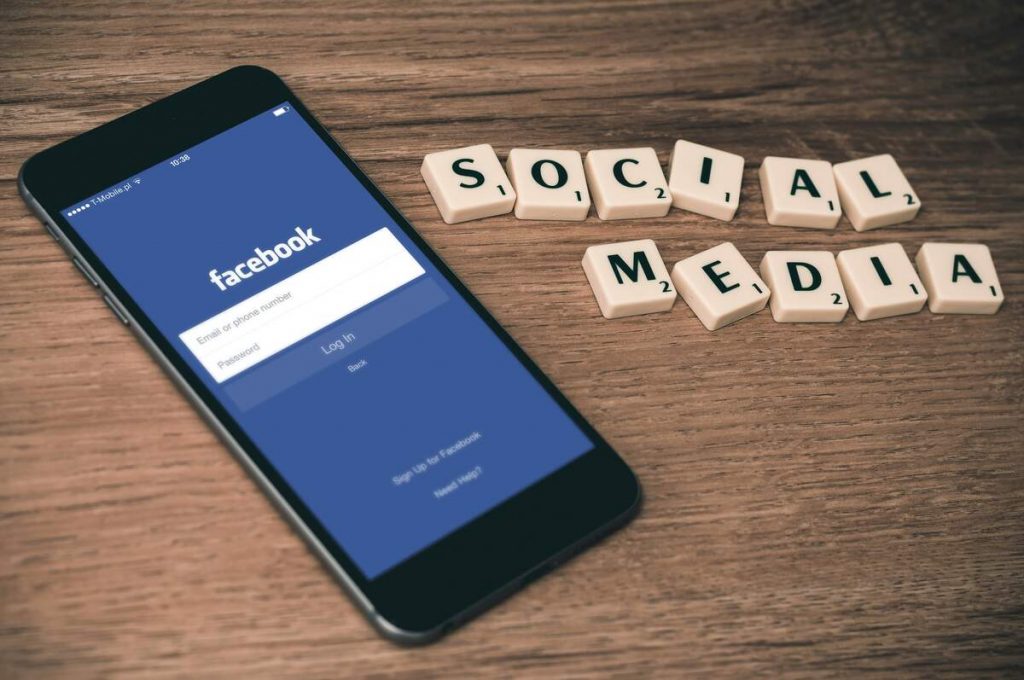
Here are 10 best omnichannel marketing tools.
1. BigCommerce
This online and offline sales tool is for large-scale businesses looking to streamline their advertising strategies. BigCommerce unifies all marketing campaigns in an easy and convenient platform, including in-store, online, social media, and marketplaces. It can also handle large volumes of sales, traffic, and transactions, providing customers with a smooth experience.
2. NewStore
NewStore is the tool for all your POS and inventory management systems. It can manage orders, inventory, and customer data across the brand’s channels. It also comes with robust marketing tools that offer personalized engagement, such as push notifications, mobile apps, and location-based marketing.
3. Glassix
If you’re looking for the best omnichannel marketing platforms for communication, Glassix sits at the top of the list. It’s an AI-powered advertising tool that helps with email, SMS, live chat, messaging apps, and social media. Using Glassix means tracking all customer interactions and messages in one user-friendly interface is easy. It also lets you send targeted messages to your audiences based on their preferences and behaviors.
4. Desku
In addition to integrating all customer communications in one interface, Desku also helps with automation functions, such as chatbots, canned responses, ticketing systems, and more. Plus, it offers reporting tools and analytics to monitor progress.
5. Omnisend
Omnisend is the platform for all your SMS and email marketing campaigns. It’s best suited for eCommerce businesses and allows advertisers to create, monitor, and automate campaigns across all channels. It offers drag-and-drop features and is extremely easy to use.
6. Tidio
When searching for the best omnichannel communication platform, Tidio ranks high. It’s designed to facilitate customer interactions, manage inquiries, and offer real-time support.
7. Adobe Experience Cloud
You can’t succeed in omnichannel marketing without using a cloud-based service. And Adobe Experience Cloud ensures you get the right cloud-based solution for optimizing customer experiences. You can use this tool to build and manage customer journeys through AI-powered insights. You can also integrate this platform with other Adobe tools like Adobe Experience Manager, Adobe Target, Adobe Campaign, Adobe Analytics, and more.
8. Revealbot
If you’re spending time on paid ads, Revealbot will help you manage them in one user-friendly interface. It’s a marketing tool that helps optimize digital advertising campaigns on Instagram, Facebook, TikTok, and Google Ads. You can use this tool to set automation features, campaign budgets, and custom ad rules.
9. Shopify Plus
Shopify Plus if one of the best omnichannel marketing platforms for eCommerce businesses. It helps create a streamlined customer shopping experience. From workflows and checkouts to customer segmentation and targeted marketing campaigns, this is a reliable tool to use.
10. Oracle CX Commerce
Oracle CX Commerce is the best solution for B2B and B2C businesses. It’s a cloud-based eCommerce platform that helps provide personalized experiences. It also offers advanced features that simplify segmentation, customized content, targeted promotions, and customer engagement.

Digital Nomads Flock To These 10 Amazing Tax-Free Cities

Adopting a Cat? Here’s Your 5-Item Starter Kit

Discover 2025’s Top 10 Online Banks for Smart Savings

The Latest In The AI Boom: What Entrepreneurs Need To Know In 2025

Taylor Swift’s Fortune: The Billionaire Behind The Eras Tour

8 Popular Mobile Payment Systems

